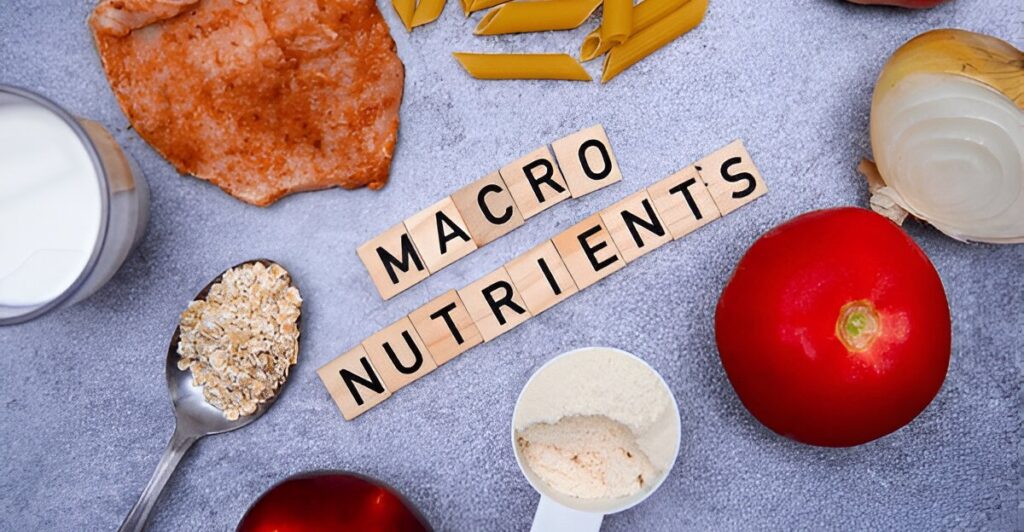Your thyroid gland plays a pivotal role in regulating metabolism, energy levels, and overall health. Eating for optimal thyroid function involves choosing foods and nutrients that support this small but mighty gland while avoiding those that may hinder its performance. This article explores the best dietary strategies to promote thyroid health, offering practical tips to help you feel your best.
Understanding the Thyroid’s Role
The thyroid, a butterfly-shaped gland in your neck, produces hormones like thyroxine (T4) and triiodothyronine (T3) that control metabolism, body temperature, heart rate, and energy production. When your thyroid is underactive (hypothyroidism) or overactive (hyperthyroidism), it can lead to symptoms like fatigue, weight changes, and mood imbalances.
Diet plays a crucial role in supporting thyroid function. By eating for optimal thyroid function, you can provide your body with the nutrients it needs to produce hormones efficiently and maintain balance.
Why Diet Matters for Thyroid Health
Certain nutrients are essential for thyroid hormone production and regulation. Deficiencies in these nutrients can impair thyroid function, while specific foods can either support or disrupt the gland’s activity. Eating for optimal thyroid function focuses on:
- Providing Key Nutrients: Iodine, selenium, zinc, and others are critical for thyroid hormone synthesis.
- Reducing Inflammation: Anti-inflammatory foods can protect the thyroid from autoimmune conditions like Hashimoto’s thyroiditis.
- Balancing Hormones: A nutrient-dense diet supports overall hormonal health, which is closely tied to thyroid function.
Let’s dive into the best foods and strategies to optimize your thyroid health.
Essential Nutrients for Thyroid Function
To support your thyroid, prioritize foods rich in the following nutrients:
1. Iodine
Iodine is a building block of thyroid hormones. Too little or too much iodine can disrupt thyroid function, so balance is key.
- Best Sources: Seaweed, fish (cod, tuna), shrimp, eggs, and iodized salt.
- Tip: Avoid excessive iodine from supplements or processed foods, as it can trigger hyperthyroidism.
2. Selenium
Selenium helps convert T4 into the active T3 hormone and protects the thyroid from oxidative stress.
- Best Sources: Brazil nuts (1-2 nuts daily meet your needs), tuna, sardines, turkey, and sunflower seeds.
- Tip: Be cautious with Brazil nuts, as overconsumption can lead to selenium toxicity.
3. Zinc
Zinc supports thyroid hormone production and immune function, which is vital for those with autoimmune thyroid conditions.
- Best Sources: Oysters, beef, pumpkin seeds, lentils, and chickpeas.
- Tip: Pair zinc-rich foods with plant-based sources of iron for better absorption.
4. Omega-3 Fatty Acids
Omega-3s reduce inflammation, which can benefit autoimmune thyroid conditions like Hashimoto’s or Graves’ disease.
- Best Sources: Fatty fish (salmon, mackerel), chia seeds, flaxseeds, and walnuts.
- Tip: Consider a high-quality fish oil supplement if you don’t eat fish regularly.
5. Vitamin D
Low vitamin D levels are linked to thyroid dysfunction and autoimmune diseases.
- Best Sources: Sunlight exposure, fatty fish, egg yolks, and fortified dairy or plant-based milk.
- Tip: Get your vitamin D levels tested and consult a healthcare provider about supplementation if needed.
Thyroid-Friendly Foods to Include
Eating for optimal thyroid function means building meals around nutrient-dense, whole foods. Here are some top choices:
- Leafy Greens: Spinach, kale, and Swiss chard provide magnesium and antioxidants to support thyroid health.
- Berries: Blueberries, strawberries, and raspberries are rich in antioxidants that reduce inflammation.
- Nuts and Seeds: Brazil nuts, pumpkin seeds, and almonds deliver selenium, zinc, and healthy fats.
- Lean Proteins: Chicken, turkey, eggs, and fish supply amino acids and nutrients for hormone production.
- Gluten-Free Grains: Quinoa, brown rice, and buckwheat are gentle on the gut and support those with thyroid-related sensitivities.
Foods to Limit or Avoid
Certain foods can interfere with thyroid function, especially for those with hypothyroidism or autoimmune conditions. Consider limiting:
- Goitrogens: Found in raw cruciferous vegetables (broccoli, cauliflower, cabbage), these compounds can inhibit iodine uptake. Cooking reduces their impact, so lightly steam or sauté these veggies.
- Soy: Soy products like tofu and soy milk may interfere with thyroid hormone absorption, especially if consumed in large amounts.
- Processed Foods: High in sugar, unhealthy fats, and sodium, these can promote inflammation and disrupt hormonal balance.
- Gluten: For some with Hashimoto’s, gluten may trigger inflammation. Consider a gluten-free trial under medical guidance.
Sample Meal Plan for Thyroid Health
Here’s a one-day meal plan designed for eating for optimal thyroid function:
- Breakfast: Scrambled eggs with spinach and avocado, served with a side of berries.
- Snack: A handful of pumpkin seeds and a Brazil nut.
- Lunch: Grilled salmon with quinoa and steamed asparagus, drizzled with olive oil.
- Snack: Greek yogurt with chia seeds and sliced strawberries.
- Dinner: Baked chicken breast with roasted sweet potatoes and sautéed kale.
Tip: Stay hydrated with water or herbal teas, as dehydration can stress the thyroid.
Lifestyle Tips to Support Thyroid Function
Diet is just one piece of the puzzle. Pair your thyroid-friendly eating plan with these habits:
- Manage Stress: Chronic stress raises cortisol, which can suppress thyroid function. Practice yoga, meditation, or deep breathing.
- Prioritize Sleep: Aim for 7-9 hours of quality sleep to support hormonal balance.
- Exercise Moderately: Regular movement boosts metabolism, but avoid overtraining, which can stress the thyroid.
- Work with a Professional: Consult a dietitian or endocrinologist to tailor your diet to your specific thyroid condition.
Common Myths About Thyroid Nutrition
Misinformation about thyroid health abounds. Let’s clear up a few myths:
- Myth 1: You Must Avoid All Goitrogens
Cooked cruciferous vegetables are safe for most people and provide valuable nutrients. Only those with severe iodine deficiency need to be cautious. - Myth 2: Supplements Can Replace a Balanced Diet
While supplements can help, whole foods provide a synergy of nutrients that pills can’t replicate. - Myth 3: Thyroid Diets Are One-Size-Fits-All
Thyroid conditions vary, so personalized nutrition is essential. What works for hypothyroidism may not suit hyperthyroidism.
The Science Behind Thyroid Nutrition
Research supports the link between diet and thyroid health. A 2019 study in Nutrients found that selenium supplementation improved thyroid function in patients with Hashimoto’s. Similarly, a 2021 study in Frontiers in Endocrinology highlighted the role of iodine and zinc in maintaining optimal thyroid hormone levels. By eating for optimal thyroid function, you align your diet with these scientific insights to promote long-term health.
Conclusion
Eating for optimal thyroid function empowers you to take control of your health by nourishing your body with the right foods and nutrients. By prioritizing iodine, selenium, zinc, and anti-inflammatory foods while avoiding potential triggers, you can support your thyroid and enhance your energy, metabolism, and well-being.
Start by incorporating thyroid-friendly foods into your meals and adopting supportive lifestyle habits. With consistency and a tailored approach, you’ll be on your way to thriving with a healthy thyroid.
Call to Action: Ready to boost your thyroid health? Try one thyroid-friendly recipe this week and share your experience in the comments!


